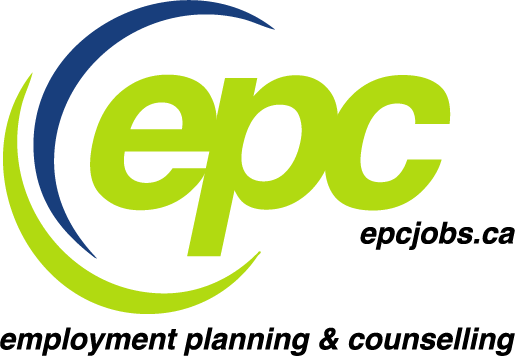The gig economy is not new, but it is gaining in popularity. The reasons for its growth according to a June 2018 US based Forbes article(1) are:
- There is a growing “education gap”.
- Attitudes toward work are changing.Workers want more freedom with their schedules, and work location.
- Employers are utilizing freelancers more often due to cost savings.
- Technology has advanced, and costs have come down making hardware, software and connectivity more affordable.
The gig economy can mean working for Uber or Lyft. It could mean renting out your home (or parts of your home) through Airbnb or VRBO. An increasingly popular route is to put your services/talents up on Freelancer, Fiverr or Upwork.
Here is a list of 25 of the most popular freelance websites
These are all viable options for people looking to enhance or in some cases replace their monthly income.
One of the best options is to work as a freelancer with local clients. You can work where ever you want and whenever you want, network locally (face to face), cultivate and develop your own clients. This can prove to be more difficult in the short-term because you have to find said clients, but in the long-term it will have some distinct advantages:
- You won’t be splitting your revenues with a 3rd party service.
- You will develop more meaningful relationships with local employers who may have the power to hire you, as a freelancer, or as a permanent employee in the future.
- You will have the ability to schedule face to face meetings, which will further develop your local relationships.
- You will have more control over the type and quantity of work you receive.This is in addition to better knowing the clients you are working for and controlling the price you are charging.
Set Yourself Up For Success
If you are serious about giving the gig economy a try there are a few things you should think about:
Where am I going to work from?
One of the biggest factors in setting yourself up for success is having a good workspace. In the case of Uber or Lyft that means a decent vehicle, but in most cases that means a home office of some sort.
Setup a dedicated room (or space) where you can work. Now this may seem obvious, but it is a mistake that is made over and over again. In a lot of cases people will work from their kitchen table – this seems easy enough, but what happens when supper time comes, and your family or roommates want to eat. Even worse, there isn’t a big distinction between when you are working or when you are socializing or eating. The space has too many purposes. A dedicated space allows you to concentrate on your work and alerts others that you are working. Keep this space work related and be religious about it. Don’t clutter it with non-work-related items.
The space should be comfortable but doesn’t have to be full of brand-new furniture. Used items can fit the bill and cut down on expenses. Acquire and replace things as you build your revenues. Most importantly have a space with good natural light that makes you feel comfortable and relaxed.
What else do I need for my workspace?
The answer to this question depends on the type of work you are planning to do. In most cases (Uber, Lyft, Airbnb & VRBO excluded) you are going to need some computer equipment. A decent laptop will get you started and again, this is something you can upgrade over time. A highspeed internet feed is a must. Invest in it. A printer is handy, but not always necessary. Some type of cloud storage is also recommended. It can save a lot of heartache when it comes to lost work due to hardware/software failure. Dropbox, Box, Google Drive, Apple iCloud and Microsoft OneDrive are all viable options. Speaking of software, you are probably going to need some of that as well. Buy what you need and license it legally. You are in business and you want to do everything above board.
What about business licenses and insurance?
A business license is a great investment. It is an inexpensive item if you are setting up a sole proprietorship. In Ontario you can purchase your business licenses online.
Insurance can vary in cost depending on what type of business you are in. Shop around to find the best fit. Keep in mind that if you are running a business from your home you will not only should have liability insurance, but also insurance to cover your office contents. Most home policies will not cover home based business contents damaged due to fire or flooding.
How do I attract clients?
As a start up in the gig economy you may not have enough cashflow to purchase traditional advertising. This is why networking is key to your success. Maintain authentic relationships with clients and potential clients. Build your personal brand and promote that personal brand on social media. Do good work. All of these aspects will help attract ‘gigs’.
What about bookkeeping?
Ah yes – bookkeeping can be a daunting but necessary task. Find a system that works for you. In some cases a full blown accounting system is needed like Sage Accounting, Quickbooks or Freshbooks but in most cases a gig based business is small (or perhaps even micro) in size and a good Excel or Google Sheets spreadsheet will be sufficient.
- Set up a separate business bank account
- Set up a numbered invoicing system
- Be sure to track all your expenses and revenue
- Keep a paper copy of receipts and invoices
- If you are going to have revenues of over $30,000 you need to collect and remit HST.It is recommended you register for HST anyways because you can submit any HST you paid on expenses and may get a refund (depending on HST revenue vs. HST expense).
Make a habit of doing your bookkeeping in regular intervals and be sure to reconcile your books with your bank account. Be sure to hold back some revenue to cover personal income tax at the end of the year. Unlike working for an employer taxes aren’t automatically taken out and must be paid when you do your yearly income tax.
This article touches on just a few aspects to consider when taking the plunge into the gig economy. It can be nerve racking, but it can also be rewarding.
For more assistance with your job search, book an appointment with a Career Counsellor at EPC or check our Workshops & Events section for upcoming dates.
About The Author
Anthony Berardi is the Marketing & Web Coordinator of EPC Peterborough. He is also a freeleance Web Developer and has been working in the gig economy for the past 12 years.
(1) 4 Reasons Why The Gig Economy Will Only Keep Growing In Numbers (Forbes) by Abdullahi Muhammed, June 28, 2018 https://www.forbes.com/sites/abdullahimuhammed/2018/06/28/4-reasons-why-the-gig-economy-will-only-keep-growing-in-numbers/#19faf34711eb

